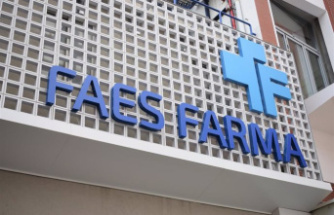Welcomes the extension of the payment period for slow-moving products up to 120 calendar days from receipt of the invoice
MADRID, 20 Mar. (EUROPA PRESS) -
The Multisector Platform against Late Payments (PMcM) has welcomed the consensus of the European Parliament in relation to the proposal for the Regulation against Late Payments, although it has indicated that they would have liked "there had not been certain exceptions to the initial proposal."
This Wednesday the IMCO Committee of the European Parliament voted on the amendments to the new European Regulation against Late Payments in commercial relations.
The president of the PMcM, Antoni Cañete, has stated that the initial proposal of the Regulation was "almost perfect" to end the delay in payment deadlines, but has recognized that, among the changes that have been proposed in the amendments and have approved this Wednesday, there are some that are "reasonable adjustments", such as the general payment period of 30 days being extendable to 60 if it includes the need for a certification period.
In a statement, Cañete stated that, in his opinion, the most important thing is that "finally coherence has triumphed, although the payment period for slow-moving products has been extended to 120 calendar days from the date receipt of the invoice".
"The position defended by numerous business associations would have meant a setback that would perpetuate the abuses of a dominant position, something that fortunately the majority in the IMCO Commission has been able to value, encouraged by employers' associations such as SME United," says Cañete, who has assessed the "effort" of the MEPs, despite the pressure exerted by business lobbies.
Furthermore, he highlighted that there have been "pleasant surprises" among the approved amendments, such as the possibility of offsetting credits with the Public Administrations; that Member States may provide that public authorities pay subcontractors directly in the case of public contracts; and that the use of payment methods that alter payment conditions is prohibited.
The agreement reached in the Parliamentary Commission this Wednesday constitutes a version close to the text that will be definitively approved, but the Regulation against Late Payments is still open to modifications.
Thus, there is the possibility that some part of the document may undergo modifications, either by the decision of the plenary session of the European Parliament in its last plenary session of the current political year or by initiative of the European Council after the trilogue has been completed.
For Antoni Cañete, this Wednesday's vote "is a first step, but it is not the last nor the definitive one," which is why he has assured that the PMcM will "exhaustively monitor" the entire process to "ensure that make the best decisions with the aim of putting an end to the scourge of late payment.













